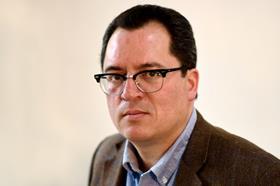The 10 Downing Street letterbox gets a daily polish, but it is not much used – few if any letters now drop through it. But letters written to this address are getting attention. Last week 800 lawyers, retired jurists and legal academics signed a letter condemning the prime minister and home secretary’s attacks ‘on lawyers seeking to hold the government to the law’. Such attacks, they continued, undermined not just lawyer safety, but also the rule of law.

The profession’s leaders, in speeches and media appearances, express that same concern for their members and the justice system. As new Law Society president David Greene said in his inauguration speech: ‘Isolated criticism converts into a rhetorical and general attack on a wide range of the profession.’
There will be plenty in government who, spotting ‘the Red Baroness’ Helena Kennedy QC and Leigh Day partners among the letter’s 800 signatories, shrug and note these are the ‘usual suspects’.
What is striking, though, is the number of signatories and supporters who hail from commercial firms. And there are barristers who have regularly acted for the government, defending judicial review proceedings. A trawl of social media (not just Twitter, but also the more professional LinkedIn) reveals a shared concern stretching across the profession – from law centres to general counsel and the global elite.
The view from a criminal legal aid or immigration firm and the top floor of a City law firm is usually very different. But on these issues the lawyers in each see the same things and share the same concerns.
Does legal education play a positive role in creating that shared mindset? Possibly. In 2013 Paul Bowden, who long combined the role of Freshfields partner with teaching law, told the Gazette there were benefits for all in having a law school as ‘a place where very talented lawyers who are going to become specialists in social security law … study alongside equally talented young people who become asset finance lawyers’.
Moments of profession-wide solidarity are not particularly common. We are not witnessing the start of a ‘movement’ and the letters sent, and speeches made, do not constitute a manifesto. But they do serve as a reminder that there is an important commonality in lawyers’ professional DNA.































No comments yet